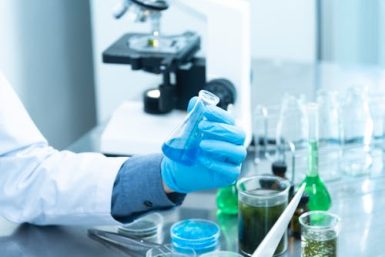
Microbiology encompasses a broad range of subjects that delve into the study of microorganisms, their biology, ecology, and applications. Here's a more detailed breakdown of the subjects or topics typically covered in microbiology:
Basic Microbiology Subjects:
1. Introduction to Microbiology
- History of microbiology
- Scope and significance of microbiology
-
Branches of microbiology
2. Cell Biology and Microbial Structure
- Prokaryotic and eukaryotic cell structure
- Bacterial cell structure and morphology
- Viral structure and replication
3. Microbial Physiology and Metabolism
- Microbial growth and reproduction
- Nutrition and metabolism of microorganisms
- Microbial genetics and regulation of gene expression
4. Microbial Diversity and Taxonomy
- Classification and identification of bacteria, viruses, fungi, and protozoa
- Microbial phylogeny and evolutionary relationships
5. Microbial Ecology
- Microbial interactions with the environment
- Roles of microorganisms in ecosystems
- Microbial biogeochemical cycles
Applied Microbiology Subjects:
6. Medical Microbiology
- Pathogenic microorganisms and infectious diseases
- Host-microbe interactions and mechanisms of pathogenesis
- Epidemiology, transmission, and control of infectious diseases
7. Immunology
- Innate and adaptive immunity
- Immunological techniques and diagnostics
- Vaccines, vaccination, and immune system disorders
8. Environmental Microbiology
- Microbial roles in soil, water, and air
- Bioremediation and environmental biotechnology
- Microbial indicators of environmental quality
9. Industrial Microbiology
- Microorganisms in food production and processing
- Microbial fermentation and bioprocessing
- Biotechnological applications of microorganisms
Advanced Microbiology Subjects:
10. Molecular Microbiology
- DNA replication, transcription, and translation in microorganisms
- Recombinant DNA technology and genetic engineering
- Genomics, proteomics, and bioinformatics in microbiology
11. Microbial Pathogenesis and Host Defense
- Mechanisms of microbial pathogenicity
- Host immune responses to infections
- Antimicrobial resistance and drug discovery
12. Virology
- Virus structure, classification, and replication
- Viral pathogenesis and antiviral strategies
- Emerging and re-emerging viral diseases
13. Mycology
- Fungal morphology, classification, and ecology
- Pathogenic fungi and fungal diseases
- Medical mycology and antifungal agents
14. Parasitology
- Protozoan and helminthic parasites
- Parasite life cycles, transmission, and control
- Medical and veterinary parasitology
Practical Components:
- Microbiology Laboratory Techniques
- Microscopy and staining techniques
- Culture, isolation, and identification of microorganisms
- Molecular biology techniques (PCR, sequencing, etc.)
- Research Methods in Microbiology
- Experimental design and data analysis
- Literature review and scientific writing
- Microbial research ethics and biosafety
Assessment Methods:
- Examinations (theory and practical)
- Assignments, essays, and literature reviews
- Laboratory reports and research projects
- Presentations and seminars
These subjects provide a comprehensive overview of the field of microbiology, covering both foundational knowledge and specialized topics. Depending on the academic program or course level, the depth and focus of these subjects may vary.
